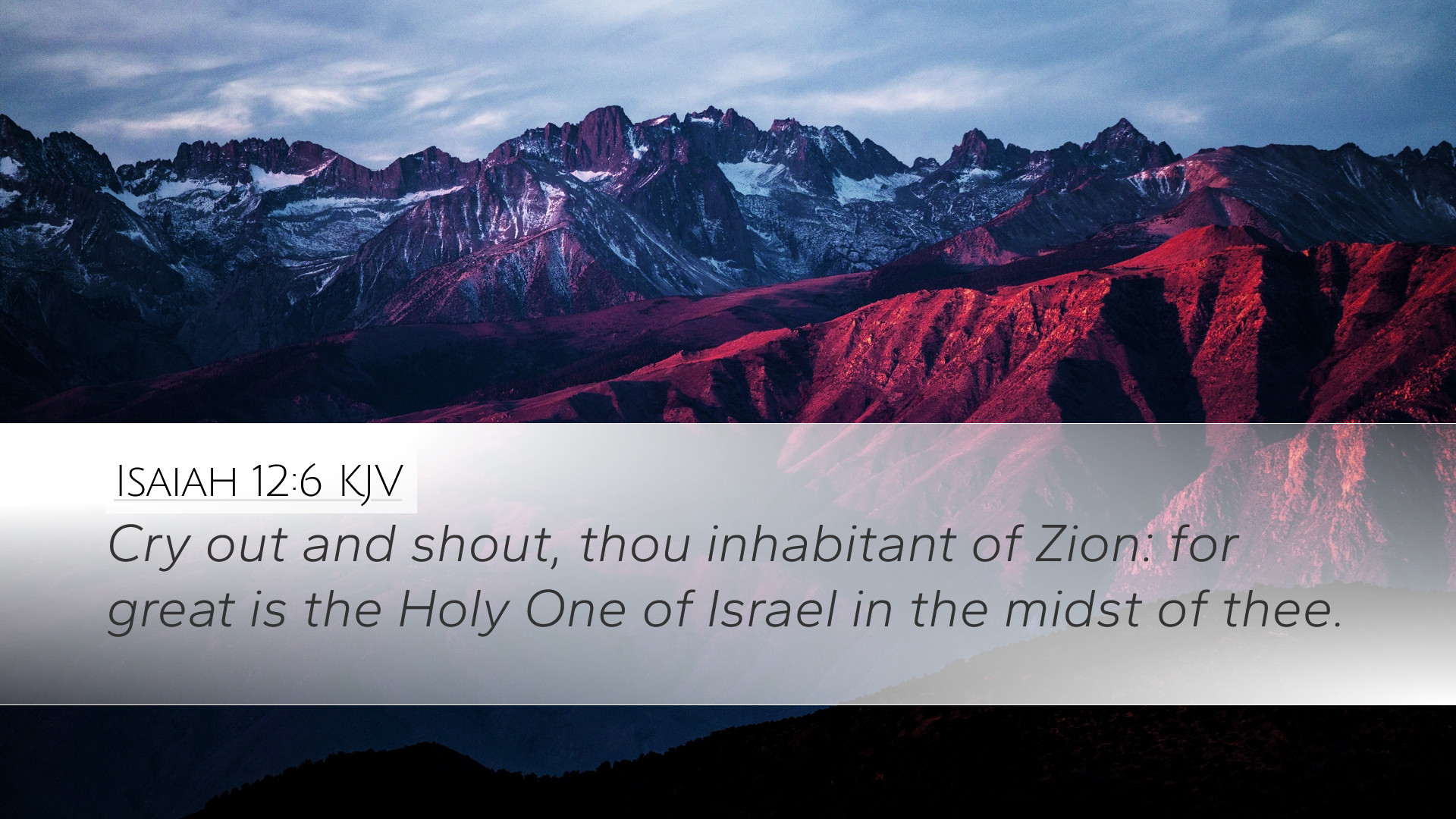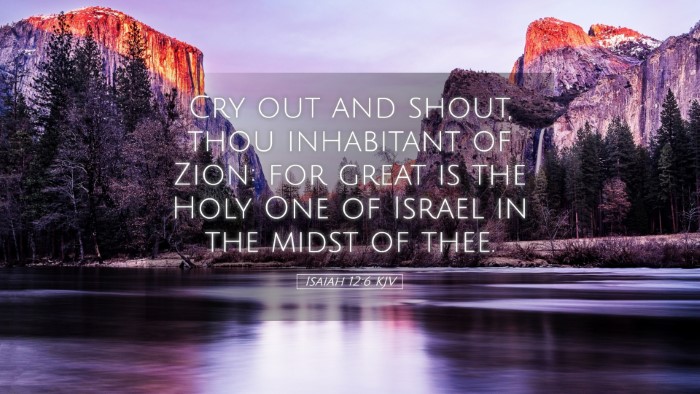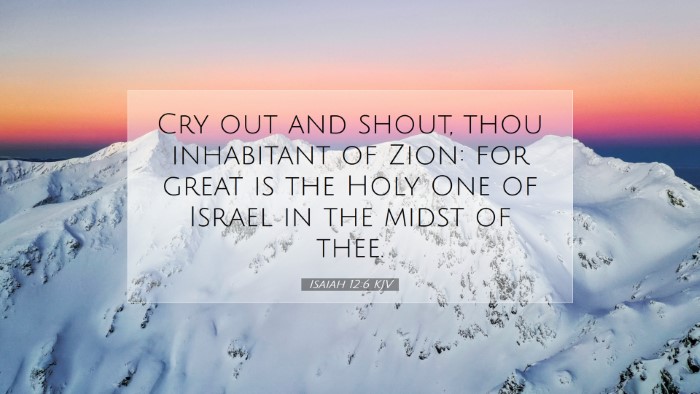Commentary on Isaiah 12:6
Verse: "Cry out and shout, O inhabitant of Zion, for great is the Holy One of Israel in your midst!"
Introduction
Isaiah 12 is a chapter imbued with profound significance, characterized by a jubilant proclamation of the Lord's salvation and presence among His people. This verse, Isaiah 12:6, urges the inhabitants of Zion to express their joy and gratitude for God's nearness and great majesty.
The Call to Joy and Praise
The phrase "Cry out and shout" serves as a vivid invitation for exuberant praise. This imperative nature emphasizes not just a quiet acknowledgment of God’s greatness but an exuberant outpouring of joy.
- Matthew Henry notes that the call to "cry out" reflects a heart overflowing with gratitude and recognition of divine favor.
- Albert Barnes highlights that this is a communal call, encouraging all inhabitants of Zion to rejoice in unity.
- Adam Clarke adds that such expressions of joy are fitting responses to the experience of grace and deliverance from God.
Zion: A Symbol of God's People
Zion represents not just a geographic location but a theological concept that encompasses God’s people and His covenantal relationship with them.
- Henry explains that Zion symbolizes the Church, where the presence of God dwells, encouraging believers to celebrate their identity as His chosen people.
- Barnes points out that Zion is often depicted as a place of refuge and joy that stands as a testament to God’s faithfulness and protection.
- Clarke extends this symbolism, suggesting that Zion conveys the idea of spiritual safety and belonging in God’s kingdom.
The Greatness of the Holy One of Israel
The verse crescendos with the declaration of "great is the Holy One of Israel." This title encapsulates God's holiness, might, and salvific power.
- Matthew Henry asserts that the holiness of God mandates reverence and awe, invoking a sense of divine authority that underpins His actions toward His people.
- Albert Barnes elaborates on the concept of God's greatness, emphasizing that His splendor and sovereignty are the foundations of Zion’s joy.
- Adam Clarke reminds us that God's presence is the source of strength and comfort for His people, making their cries of joy not mere expressions but testimonies of faith.
The Presence of God
"In your midst" signifies the profound theological truth of God’s immanence. This presence reflects His closeness and active engagement with His creation.
- Henry explains that God’s presence is not just an abstract concept but a reality that believers experience, fueling their rejoicing.
- Barnes emphasizes the importance of recognizing God in our daily lives, advocating for a continual state of awareness of His guiding hand.
- Clarke notes that the assurance of God’s presence encourages believers to face challenges confidently, reminding them they are never alone.
Theological Reflections
The implications of this verse suggest an overarching theme in the Scriptures regarding salvation, community, and divine presence.
- From a soteriological perspective, this verse foreshadows the ultimate salvation brought forth through Jesus Christ, the Holy One of Israel.
- Considering ecclesiology, the call to shout and cry emphasizes the role of the church as a vibrant community of praise and worship.
- In terms of eschatology, the text beckons a future hope where God's presence among His people will be fully realized in the New Jerusalem.
Practical Applications
This verse encourages believers not only to rejoice in God’s salvation but also to actively express their faith in communal settings.
- Worship Services: Incorporating joyful expressions in worship can reflect the spirit of this passage.
- Community Engagement: Advocating for inclusivity within the church to embody the communal aspect of Zion.
- Personal Reflection: Regularly reflecting on God’s presence in one’s life can enhance spiritual growth and bring deeper joy.
Conclusion
Isaiah 12:6 serves as a powerful reminder of the joy and celebration that should characterize the life of believers. As they cry out and shout, they acknowledge the greatness of the Holy One of Israel who dwells among them, ensuring that their worship is both heartfelt and rooted in the rich theological truths that the verse encapsulates.


